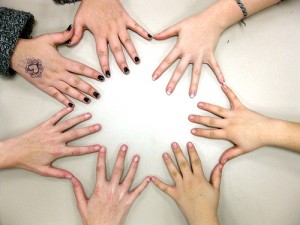New York-based teacher Lisa Nielson writes in The Innovative Educator, as one of her 20 ideas for parent participation:
Whether you want your child to have a particular learning opportunity or you don't want your child subjected to meaningless test prep, parents can push schools to stop with the one-size-fits all learning and become partners at tailoring their learning to children as individuals.
If a teacher had to come up with an individual learning plan for every student for every subject, it might seem overwhelming. But what if we didn't require teachers to own the learning and instead, let students and parents own the learning.
Teacher Lisa Cooley takes it further. In her comment on "What Students Need from Teachers," she writes:
I don't want to take issue with any of the points, above, but it is all based on the need we have as adults to decide what kids learn. I help students find their passions, and I provide the means and the guidance to help them pursue and develop them.
I'm especially fascinated with her view on authority on her blog The Minds of Kids.
What it is that bestows it on one person or a group of people, and how it is used. Adults have a position of natural authority over children, and that is appropriate. Adults are the guides and protectors of children. But why does authority sometimes morph to authoritarianism? What is the difference? We as adults come by our authority over children through our age and experience, and also through the love we have for them. Why turn that into the baseball bat of authoritarianism?
Allowing children to pursue their passions, exposing them to new things, providing a wonderful candy store of ideas and places and people and giving them everything they need to select what makes them happy: how is that giving up our authority? You don't lose anything when you respect the wishes and needs of children. You gain their returned respect.
These ideas combined make learning a three-way endeavor, divided equally between parent, educator, and learner. Boundaries fully blurred, but eyes wide open.


